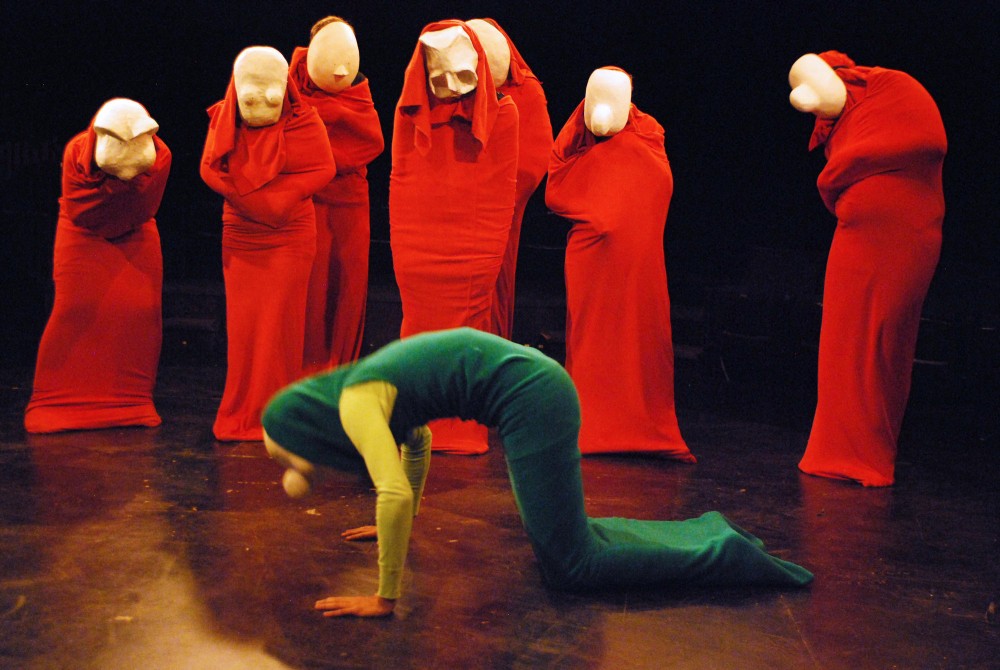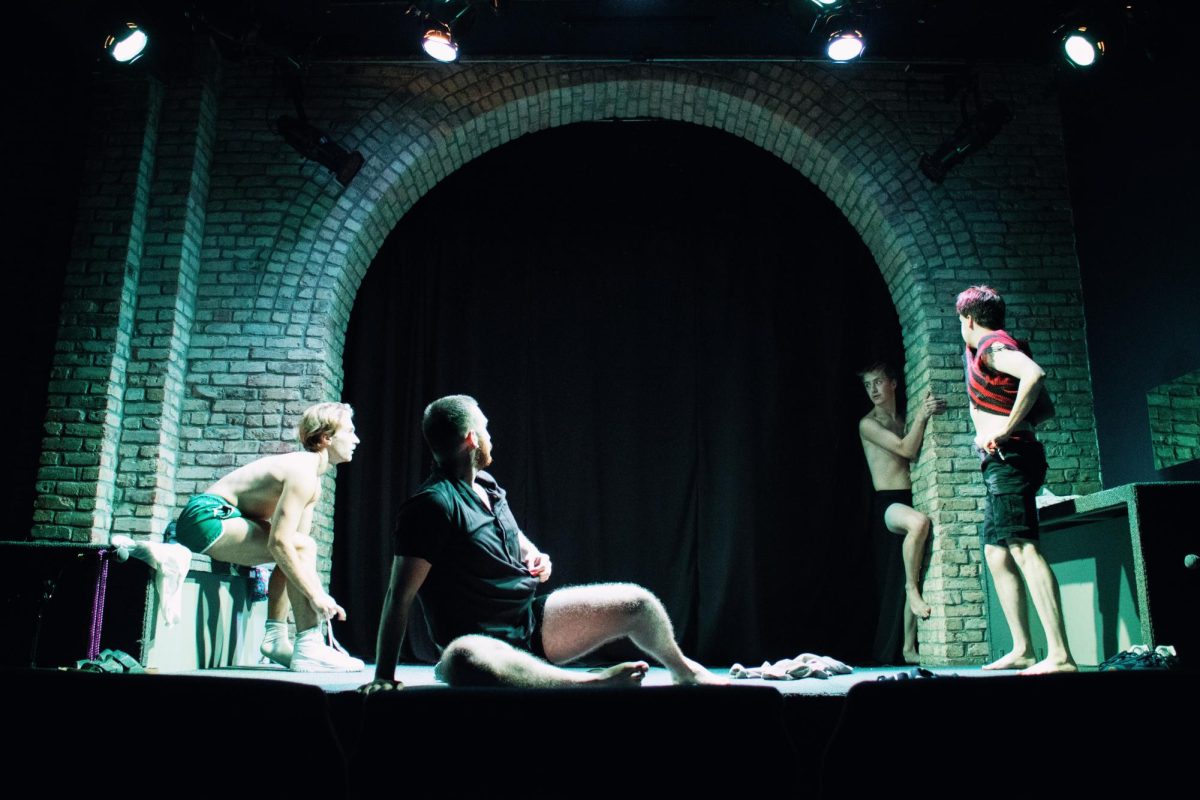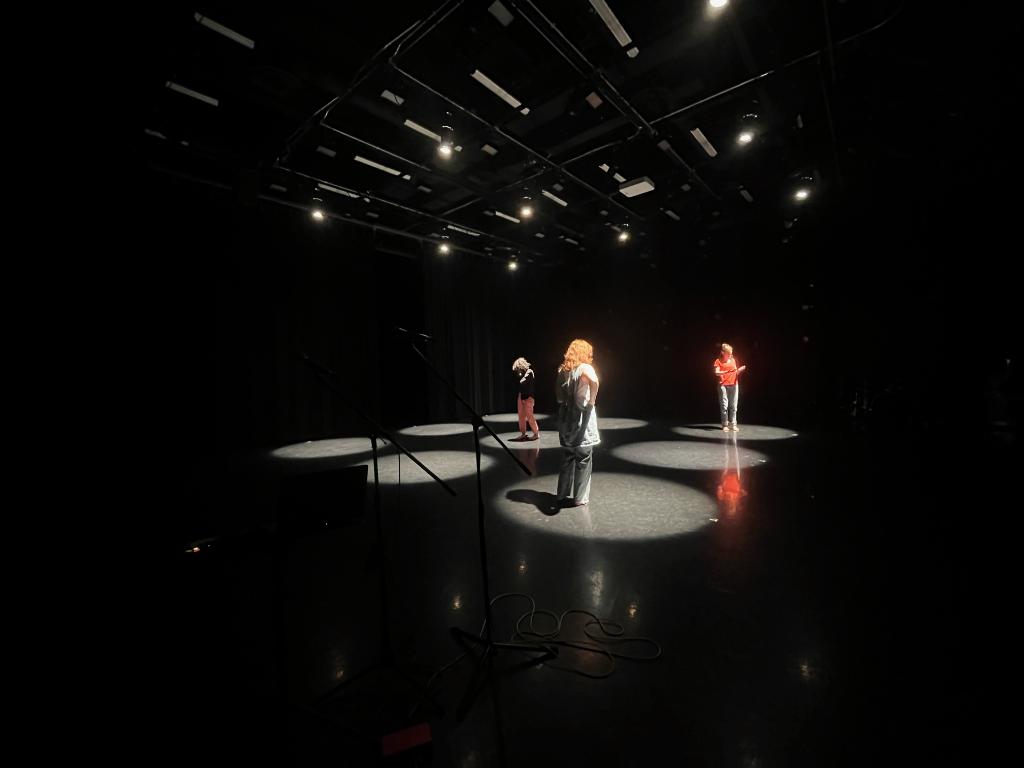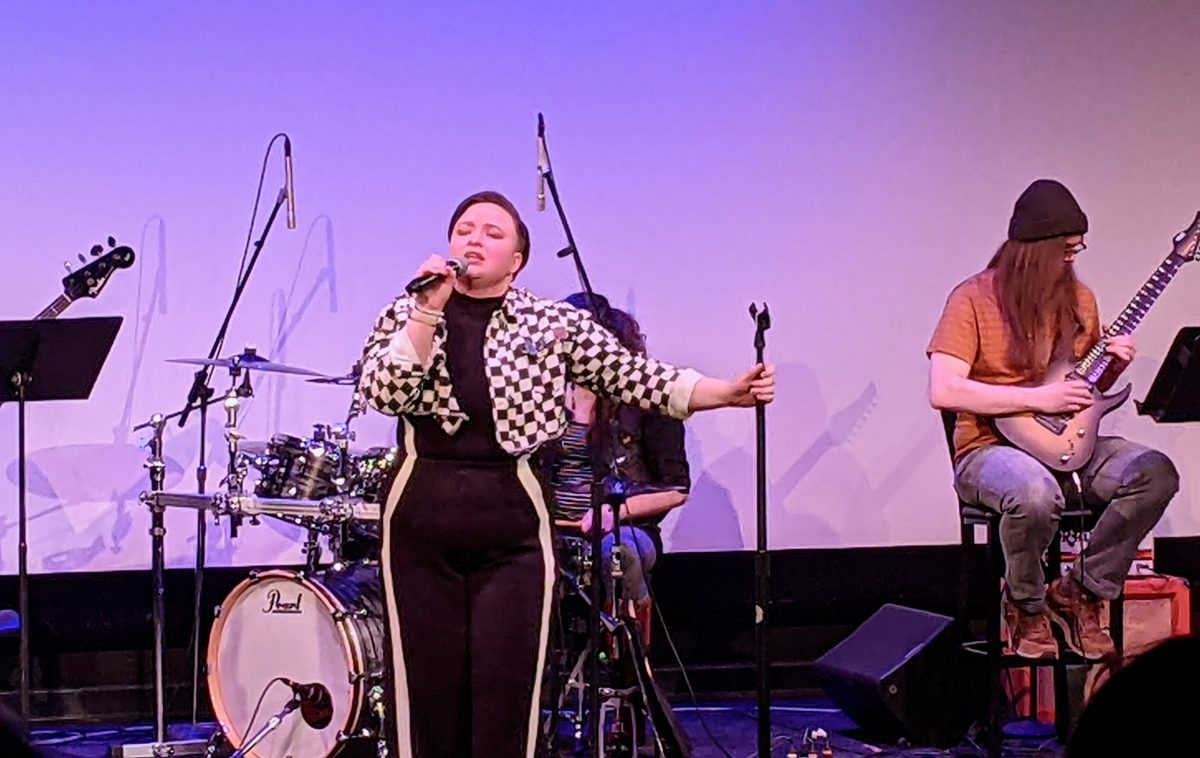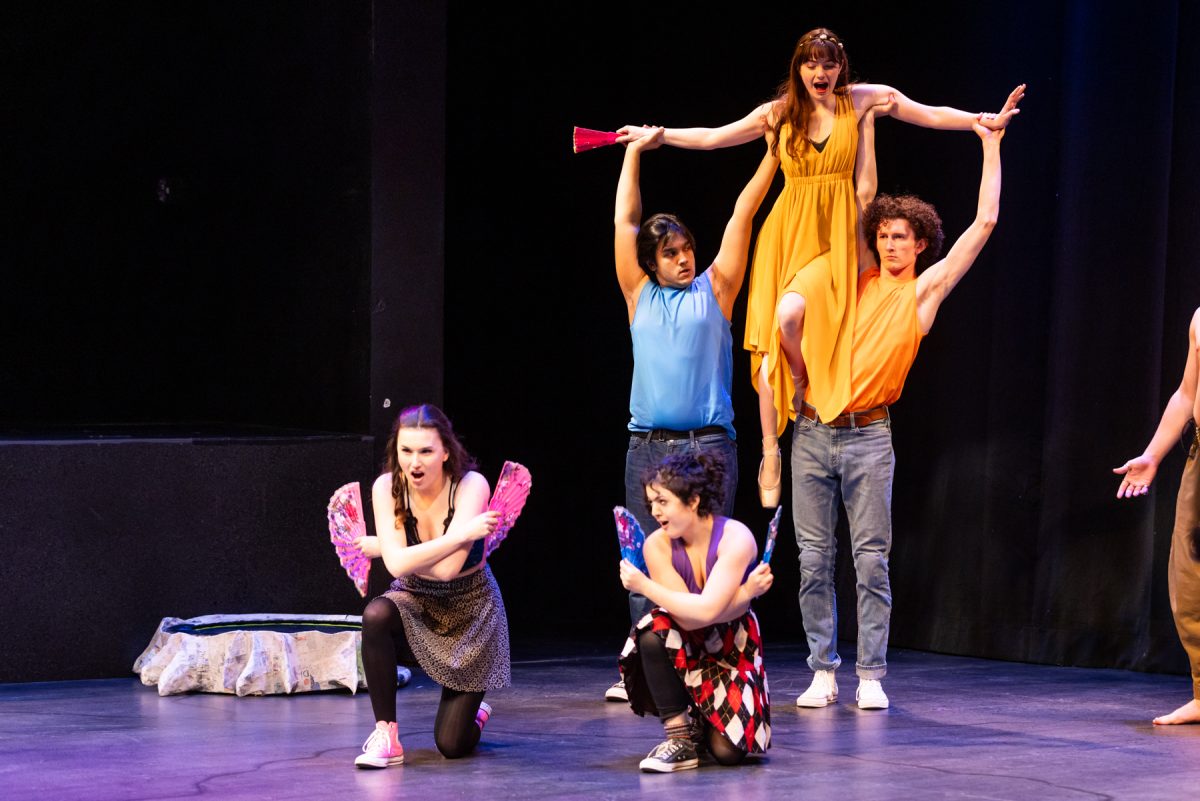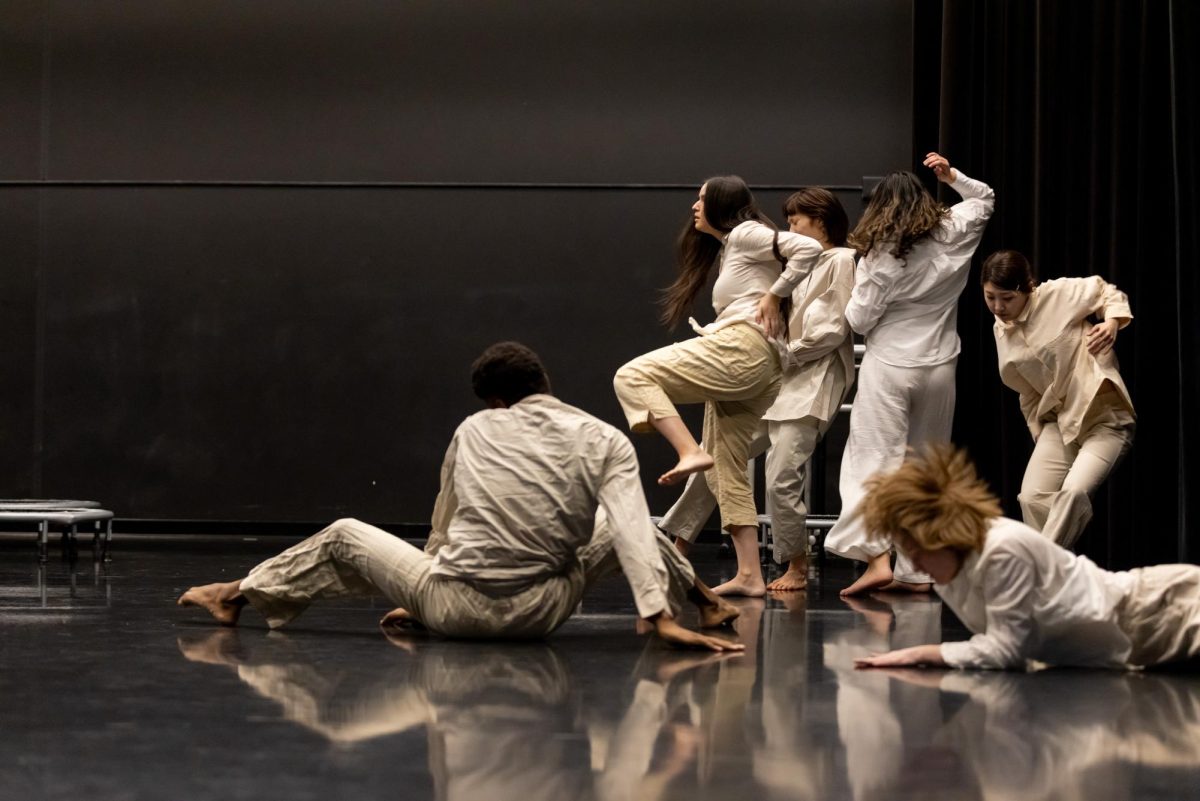What: âÄúMasks âÄì Creative CollaborationâÄù
When: 7:30 p.m., Oct. 10 and Oct. 11,
Where: Rarig Center
Cost: Free
Creative collaborations are staples of the University of Minnesota theater departmentâÄôs repertoire. And with its new production, âÄúMasks âÄì Creative Collaboration,âÄù the department shows us that this shtick wonâÄôt be dropped anytime soon.
Rarig CenterâÄôs grand tradition of script-less, narrative-less, improvisation-fueled, vignette-centric productions will be carried on by students in professor Robert RosenâÄôs theater class Monday and Tuesday nights.
Against an accordion playerâÄôs sonic backdrop, actors will use masks to explore the theme of evolution.
The music may very well be the only sound audience members hear Monday night. After all, actors wonâÄôt be able to use their voices during the performance. Or their pretty little smiles.
PerformersâÄô mouths will be obstructed by larval masks, which will be worn for the entirety of the performance.
âÄúWe call them larval because you can portray a creature, animal, or insect,âÄù Rosen said. âÄúItâÄôs up to the performer to make the mask be something.âÄù
When actors use this type of mask, the only tool they have in their acting toolboxes are their bodies. They have to convey their characters and capture audience attention in a purely physical way.
Because it gets hard to breathe and see in the warm masks, this type of acting is strenuous âÄî so strenuous that performers canâÄôt endure conditions in the mask for too long. âÄúMasksâÄù actors will take turns performing short scenes, which will give them chances to catch their breath and enjoy full vision offstage.
âÄúIt can be difficult, but itâÄôs a learning process,âÄù said Lauren Haven, a theater senior.
Haven is one of nine students who made it through the audition process to take the course with Rosen. They have met for three hours every weeknight for about five weeks to work on the production.
During the first week, students tried their hands at making their own larval masks. For the actual performances, theyâÄôll use a combination of their own masks and ones imported from Switzerland. The origin of the larval masks, which vary in size and shape but are typically white, is rooted in the Swiss winter carnival tradition.
And the masks have a curiously naïve, sweet quality about them. Audiences can expect the overall tone of the class production to be light-hearted and humorous, even if there are a few serious vignettes thrown in.
The idea of evolution will be approached from a hodgepodge of angles. One scene will take place in an office space, in which three employees and their boss will grapple with discovering a new piece of technology; another scene might feature a starfish, a shark and a mermaid. Actors will pretend to be animals, people and everything in between.
âÄúItâÄôs not necessarily evolution in the way that Darwin would have approached it,âÄù Haven said.










